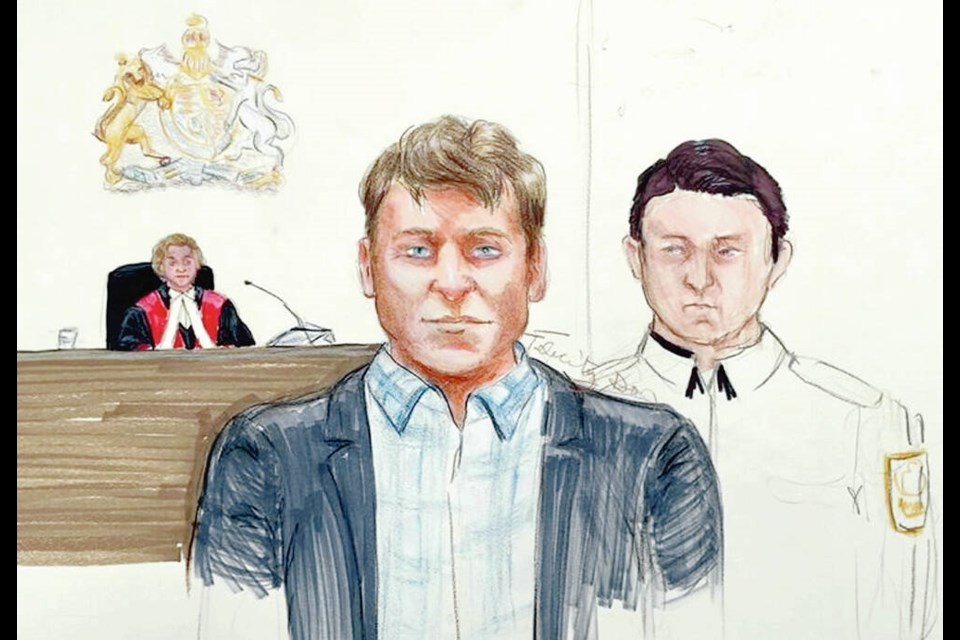An appeal by Andrew Berry to overturn his convictions for the murders of his two young daughters on Christmas Day 2017 has been dismissed by the B.C. Court of Appeal.
“None of the grounds of appeal establish errors that warrant this court’s intervention,” says the summary of the ruling, released Wednesday.
The appeal was heard by Court of Appeal justices John Hunter, Patrice Abrioux and Joyce DeWitt-Van Oosten.
In September 2019, Andrew Berry was convicted of the second-degree murders of six-year-old Chloe Elizabeth and four-year-old Aubrey Kate, who were stabbed to death at his Beach Drive apartment. He was sentenced to life in prison with no eligibility for parole for 22 years.
Berry, who has maintained his innocence, filed the notice of appeal minutes after his sentence was imposed in December 2019.
The hearing took place in June at the Vancouver Law Courts.
Berry’s lawyer alleged a number of errors in pre-trial rulings in which the trial judge admitted statements that Berry made at the scene of the crime to first responders — including “leave me alone, kill me” — and later at the hospital to the staff and to his sister.
When Berry awoke from surgery, the court heard he mouthed the words “kill me” to a nurse and handwritten notes were exchanged between Berry and his sister.
Berry’s lawyers also alleged errors in mid-trial rulings that limited cross-examination regarding the adequacy of the police investigation, and complained about the admissibility and use of evidence surrounding his failure to ask about the well-being of his children after the offence.
“With respect to the admissibility of statements at the scene of the crime and at the hospital, the trial judge did not err in concluding that the first responders, hospital staff, and the appellant’s sister were not persons in authority,” wrote the justices.
“As such, the common law confessions rule was not engaged and those statements were not inadmissible.”
The justices also ruled Berry was not detained at the scene or when first admitted to hospital, and that the trial judge correctly found that Berry, while admitted under the Mental Health Act, “did not have a constitutionally protected right to silence … nor were statements made during that period statutorily compelled and entitled to use-immunity.”
Berry also took issue with the trial judge’s charge to the jury on the use made of his out-of-court statements and evidence of a suicide attempt, and instructions on the offence of manslaughter.
“There were no errors in the trial judge’s charge to the jury regarding the use of the appellant’s out-of-court statements, the evidence of his attempted suicide, or the instructions on manslaughter,” the judges wrote.
The trial judge carefully instructed the jury on each of these points and it was up to the jury to decide how to assess the relevant evidence and what weight to give to it, the justices ruled.
Lastly, there was no error in law or principle in the mid-trial rulings regarding evidence of Berry’s silence or the adequacy of the investigation, the justices decided.




